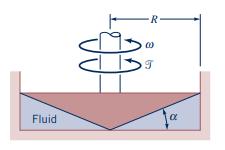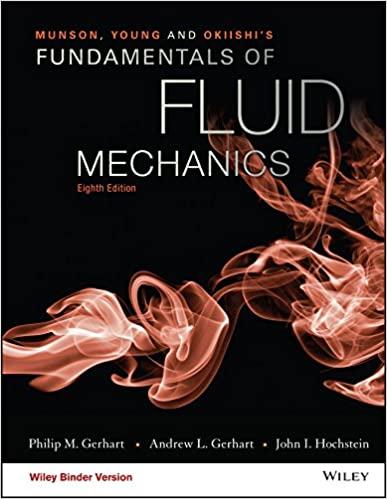A cone and plate viscometer consists of a cone with a very small angle (alpha) that rotates
Question:
A cone and plate viscometer consists of a cone with a very small angle \(\alpha\) that rotates above a flat surface as shown in Fig. P7.16. The torque, \(\mathscr{T}\), required to rotate the cone at an angular velocity \(\omega\) is a function of the radius, \(R\), the cone angle, \(\alpha\), and the fluid viscosity, \(\mu\), in addition to \(\omega\). With the aid of dimensional analysis, determine how the torque will change if both the viscosity and angular velocity are doubled.
Figure P7.16

Fantastic news! We've Found the answer you've been seeking!
Step by Step Answer:
Related Book For 

Munson Young And Okiishi's Fundamentals Of Fluid Mechanics
ISBN: 9781119080701
8th Edition
Authors: Philip M. Gerhart, Andrew L. Gerhart, John I. Hochstein
Question Posted:





